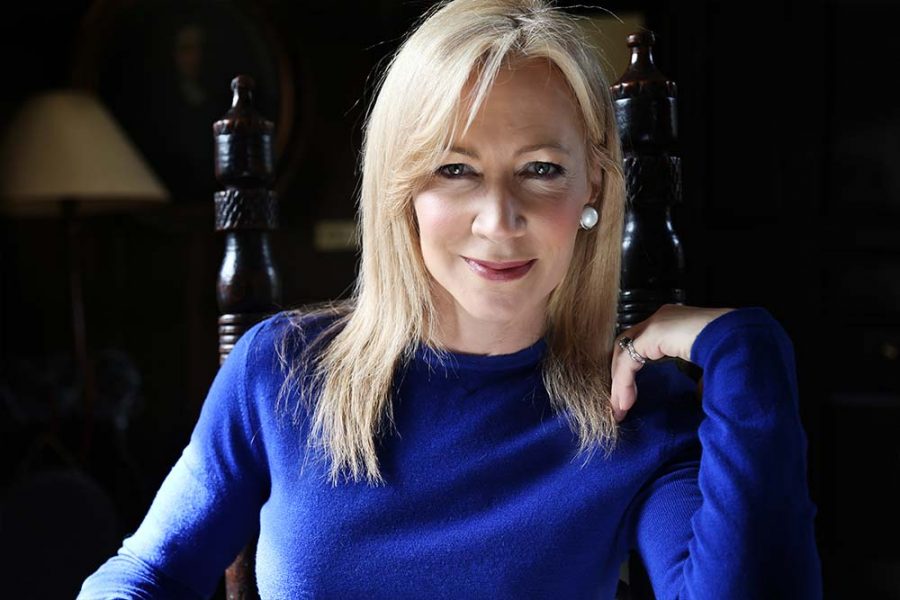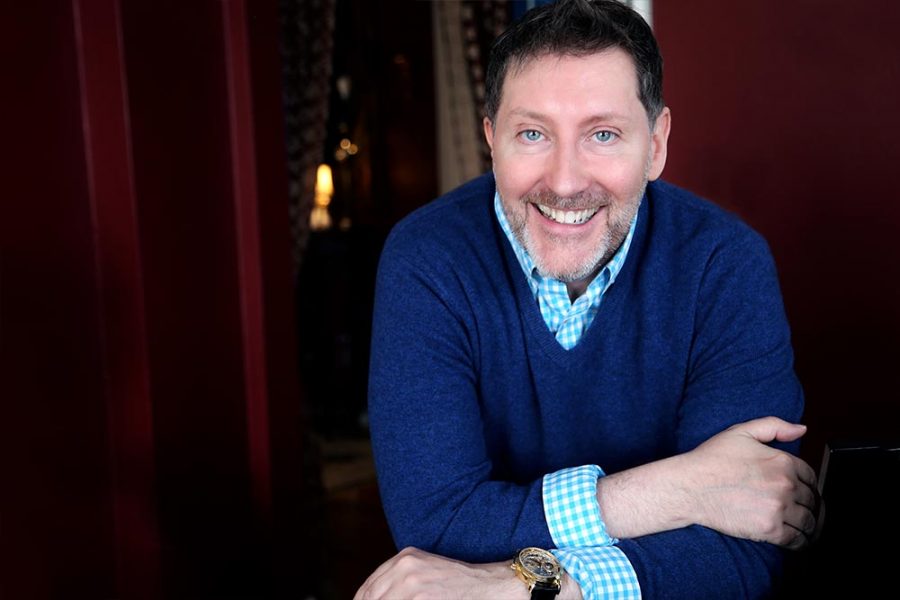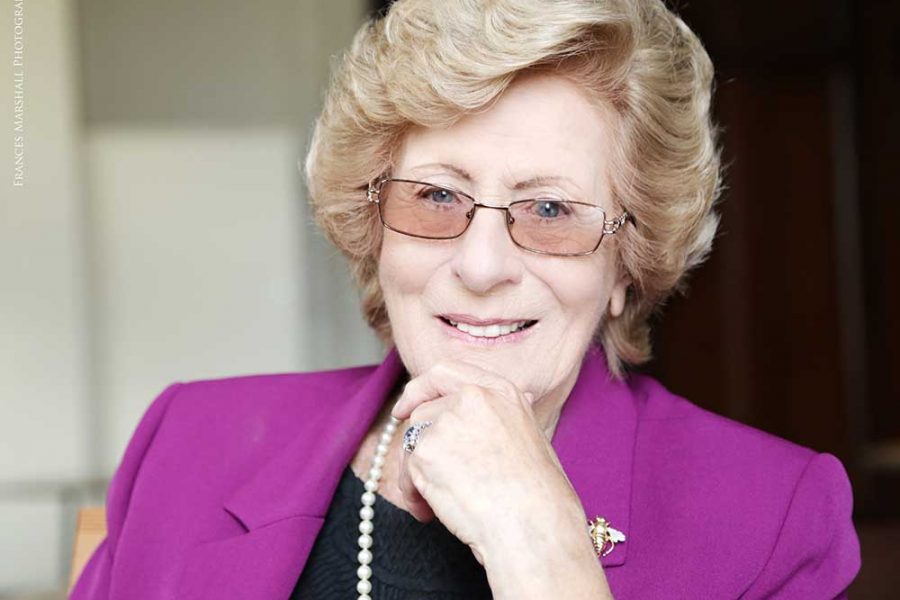In Conversation with Gerard Gillen

June 2015
Words by
Emer Nestor
Photos by
Frances Marshall
The organ sounded faintly in the church below. Swelling by degrees the melody ascended to the roof, and filled the choir and nave. Expanding more and more, it rose up, up; up, up; higher, higher, higher up; awakening agitated hearts within the burly piles of oak, the hollow bells, the iron-bound doors, the stairs of solid stone; until the tower walls were insufficient to contain it, and it soared into the sky.
— The Chimes, Charles Dickens (1844)
Dublin-born organist Gerard Gillen is known the world-over for his remarkable musicality, technical superiority, and academic excellence. In his former capacity as Head of Music at Maynooth University (National University of Ireland, Maynooth), Emeritus Professor Gillen completely revolutionised the undergraduate and postgraduate curriculum, and raised the profile of the University Choral Society during his 22-year tenure. He has been Titular Organist of Dublin’s Pro-Cathedral since 1976, and is frequently in demand as a consultant on various organ-building and restoration projects throughout the country. As a fine musicologist, Gillen has published extensively on Catholic Church Music and is co-founder and co-general editor, with Professor Harry White, of the academic journal Irish Musical Studies. He was chair of the Editorial board of Ireland’s largest research project in music to date, the Encyclopaedia of Music in Ireland.
In recognition of his vast contribution to classical music, Gillen has received an array of prestigious honours: a Knighthood of St Gregory (KCSG) from the Vatican (1986); the John Betts Fellowship from the University of Oxford (1992); Chevalier des Ars et des Lettres from the French Government for his contribution to French Music (2006); an honorary PhD from the Pontifical University of Maynooth for his services to Church Music (2007); the Belgian Government honour of ‘Officer of the Crown’, and the Ehrenkreuz für Wissenschaft und Kunst, 1e Klasse (Cross of Honour for Science and Arts) by the Government of Austria (2011). Gillen was also elected to Fellowship of the Royal Irish Academy of Music (FRIAM). From 1993 to 2014 he was chair of the Irish Episcopal Commission’s Advisory Committee on Church Music.
Gillen takes time out from his busy schedule to talk about the early days, and life after retirement.
I was drawn to music from the earliest age: I can recall sitting on my father’s knee at the age of 4 (or thereabouts), singing the ballad ‘I’ll take you home again, Kathleen’ — one of his favourites."

Describe your early childhood in the Gillen household?
I was fortunate to grow up in an average Dublin working-class home, the second youngest of a family of five, with loving and caring parents, and as part of a society where community was everything, and where the local church, the Oblate Fathers in Inchicore, was the epicentre of all social activity. I was drawn to music from the earliest age: I can recall sitting on my father’s knee at the age of 4 (or thereabouts), singing the ballad ‘I’ll take you home again, Kathleen’ — one of his favourites. I was also fortunate in our next door neighbour — a talented and highly educated organist, John Clery, then organist of the Franciscan Friary, Merchant’s Quay — who took me under his wing, as he perceived from my early attempts at piano-playing, that I might have some talent.
What do you remember from your piano studies with Elizabeth Costello?
After a year or so of lessons with a local teacher, my parents enrolled me as a piano and theory student at the Municipal School of music in Chatham Row (now DIT Conservatory of Music and Drama), where after a year or so I had the good fortune to be assigned to the school’s latest new recruit, the formidable Elizabeth Costello. Costello, the last surviving pupil of Michele Esposito, came to Chatham Row after some years as a secondary school teacher of English and Irish at the rather exclusive Miss Meredith’s School in Pembroke Road, where, incidentally, one of her favourite students was Maeve Binchy. Her pedigree, therefore, both as a rigorously-trained pianist, and as a highly educated lady in general terms was first class, and she expected the highest standards of application and achievement from her young charges. She was to be a major influence on my musical development, and was the first to open up to me the possibilities of making music my career.
Why did you also study organ with William Sydney Greig, and how did you deal with the technical switch between both styles of playing?
The organ had been part of my life, from about the age of 8, when John Clery had me play for the service of Benediction in Merchant’s Quay. When the School of Music acquired an organ as part of its developing expansion of facilities in 1955 (60 years ago!) and when they appointed W. S. Greig as organ teacher, it was natural that I should become a student, and commence serious study of the instrument. Naturally Bessie Costello was not best pleased, as she probably rightly felt that the study of two instruments naturally meant less study for one! However, she bore it remarkably well, despite the odd barbed comment over the subsequent years of study of both instruments.
How was your time in Antwerp with Flor Peeters?
After Leaving Cert, with the encouragement of both Costello and Greig, and the award of a special Dublin VEC Music Scholarship, I proceeded to University College Dublin to study combined Arts and Music, and joined the then elite group of music students studying under the tutelage of the formidable and demanding, Professor Anthony Hughes. The unexpected award of an Arts Council travelling scholarship enabled me to interrupt my undergraduate studies for a year and travel to Antwerp to join the organ class of the renowned Flemish organist and composer, Flor Peeters at the Royal Flemish Conservatoire. This year of study abroad was a game-changer in every sense for me. It was my first time to live away from home, and abroad, for any extended period, and the exposure to a continental way of life, not to mention the new intensity organ study demanded of me, opened up new avenues of personal and professional expression hitherto undreamt of. At the end of the year’s hard work I was awarded the Conservatorie’s Premier Prix ‘with great distinction’, and Peeters also entered me for the first Bruges International Organ Competition at which I was lucky enough to gain a prize. So, I headed back to Dublin to complete the final year of my undergraduate study with super-renewed confidence and focus. Two years later I was awarded the NUI Travelling Studentship which funded three years postgraduate study abroad, and this enabled me to return to Antwerp for a ‘finishing’ year with Flor Peeters, and the award of the Conservatoire’s Prix d’Excellence, before heading to Queen’s College, Oxford, for musicological research for two years.
Tell us about your Oxford studies.
Graduate study at Oxford was an experience I relished, from the delights of residential stylised collegiate life, to encountering some of the finest musicological minds in the world — Frank Harrison, Egon Wellesz, Jack Westrup, Edmund Rubbra, not to mention the stimulation of meeting people of other disciplines such as A.J. Ayer, Lord David Cecil, Lord Florey (co-discoverer of penicillin), Hugh Trevor-Roper etc… And the daily experience, as it were, of hearing some of the finest collegiate choirs in the world, such as those of Magdalen College, New College and Christ Church, left an indelible mark.
Why did you decide to return to Ireland to work (rather than establish a performing career in England, France or Germany)?
At the end of my Oxford period, I was fortunate enough to be offered two jobs — one at University College Cork and the other at UCD. Being a born ‘Dub’ I chose UCD, where I spent 16 very happy years.

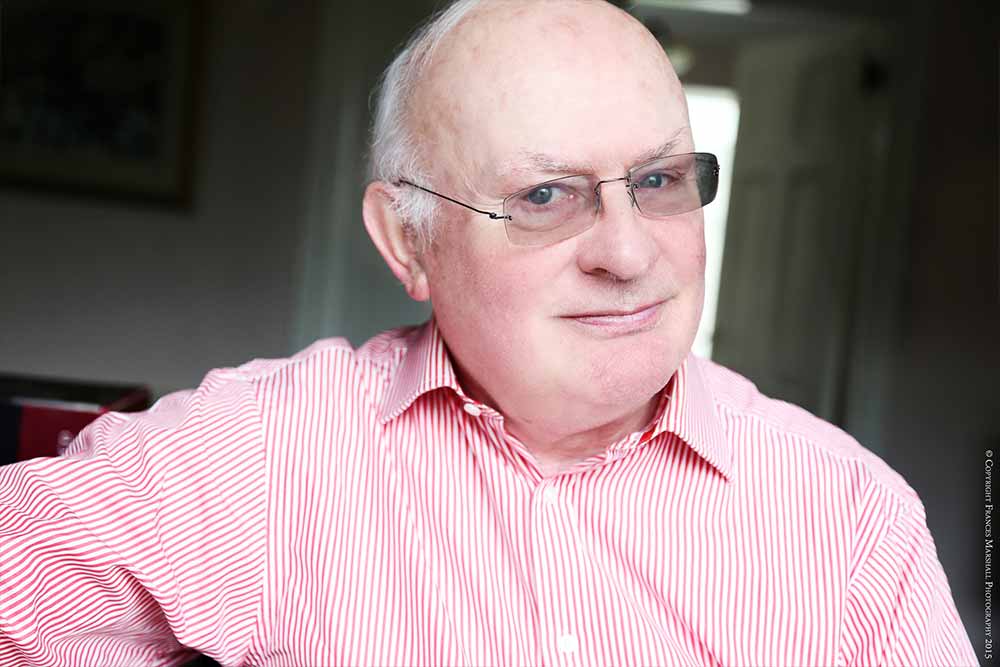


I discovered in UCD that I really liked teaching and the stimulation that daily encounters with students brought."

What was the music department of University College Dublin like in the 1960s?
I discovered in UCD that I really liked teaching and the stimulation that daily encounters with students brought. While it is invidious to mention names, I had as students household names in the classical music world such as Gerald Barry, Raymond Deane, Patrick Devine, the late and much-lamented Anne Leahy, Harry White, Therese Smith, Joseph Ryan, John O’Keeffe, Shane Brennan, Brid and Evelyn Grant. These and many others whom I am happy now to count as friends, contributed enormously to my ongoing personal, musical and intellectual development.
Why are you so taken with Church Music?
Of course, parallel with my UCD lecturing job, I had a church organist position (as I had fulltime from the age of 15!), now in the then prestigious church of St Mary’s, Haddington Road, and this weekly (occasionally daily) contact with the regular rhythms of service-playing, ensured that my interests in liturgy, and its changing patterns following Vatican II, were at the fore of my concerns. And in 1976 the then archbishop of Dublin, former UCD academic Dermot Ryan, invited me to move to the Pro-Cathedral as Titular Organist — a position I continue to hold.
What did the Knighthood of St Gregory (KCSG) mean to you?
It was very nice to have been awarded a Papal Knighthood in 1984. This was awarded because of my role as organist for the historic Papal visit of 1979. But one must not become too excited about awards, as their awarding follows no logical or necessarily intrinsic path of merit. I can think of so many colleagues, equally if not more deserving of awards, for whom they just have not happened. It can be very much a matter of being in the right place at the right time!
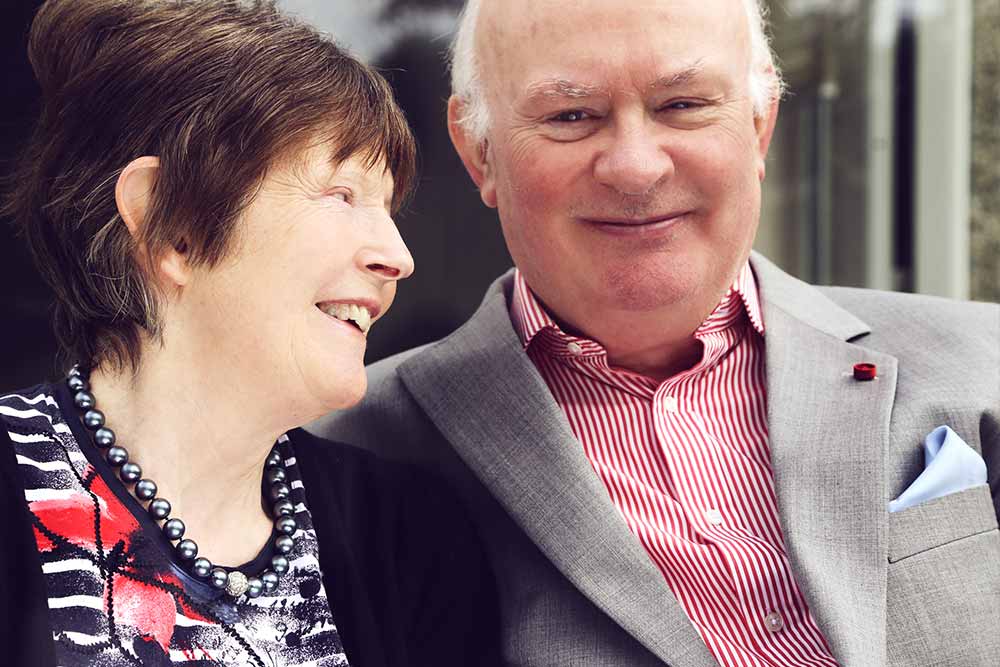


As one of the foremost organ consultants in Ireland, what does your role involve?
As an ancillary activity to being an organist I have and am often asked to consult on organ installations and renovations. I suppose the most notable of these has been the Kenneth Jones organ in the National Concert Hall, the Rieger organ of St Michael’s, Dun Laoghaire and the attendant long-running summer recital series, Trevor Crowe’s wonderful work on the organ of St Canice’s Cathedral, Killkenny, and St Muredach’s Ballina. More recently, I have been involved in the Ruffatti renovation of the Chapel organ in Maynooth, and the new instrument for St Mel’s Cathedral, Longford. All exciting projects with which I have been very proud to be associated.
Having performed all over the world, do you have a favourite recital space?
I have been very fortunate to have given many recitals on three continents and the Middle East, and the experience of visiting so many different parts of the world and encountering instruments of such diversity of style, vintage and size, has been so stimulating.
Which instrument stands out among so many? I think I would have to give pride of place to the great Christian Mueller instrument of St Bavo’s Church in Haarlem in the Netherlands, an instrument that has almost ‘Mecca’ stature among organists. I was fortunate to have been invited twice to give full-length recitals there.
What advice would you give to any aspiring classical musicians hoping to carve out a career in performance?
I have been very lucky to have been able to combine a performing career with an academic one. And the organ is one of the few instruments that allows for this particular combination of careers. To young people aspiring to full-time careers as performers of whatever instrument (including voice), I have to say that they have chosen the most difficult of careers, and that they should not even think about it unless they are seriously talented (as attested by external professionals in the field), and that they are prepared to work relentlessly in the pursuit of their career. They have to be outstandingly good, have nerves of steel, and be 110% reliable. And they will need lots of luck!
If, having given it their best for a reasonable number of years and things do not appear to be working out as they had envisaged, I would urge them not to be afraid to change careers, and not to grow bitter with recriminations, real or imaginary. Well-trained performing musicians are highly skilled and intelligent people who can bring many outstanding qualities of focus, resilience, analysis, quick mental processes etc…, to whatever alternative career they may choose.
Any thoughts on the current situation in Ireland and the UK in which the musicological scene is oversaturated with PhD graduates who cannot find university teaching positions?
The same attitude should apply to academic musicians, who may have become fine scholars with PhDs, and find there are no jobs, or very poorly-paid ones — a depressing situation in contemporary academia as governments are demanding the ‘production’ of more and more graduates to doctoral level, while cutting back on funding and resources…and jobs! Indeed one senior music academic has told me he is so depressed by the situation that he is refusing to teach any more PhD students, as he feels he would be simply “leading them up the path“! My advice to such young academics is the same as to performers: don’t hang around ‘waiting for Godot’, but embark on something else. They will find the skills they have acquired are eminently transferable.
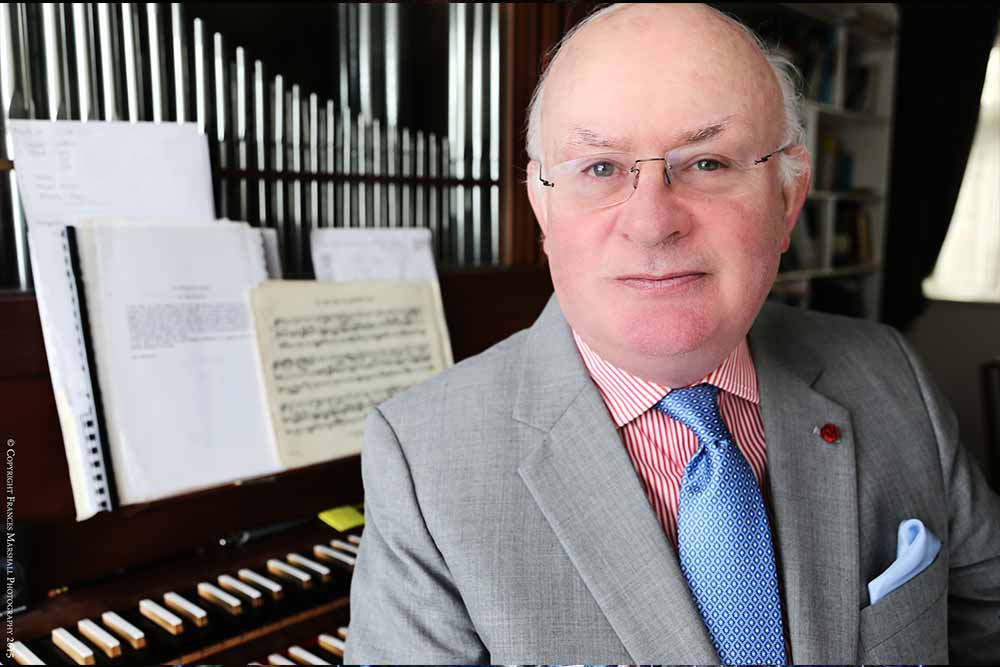

Do you miss university teaching?
I am now almost 8 years retired from my post as professorial Head of Department at Maynooth University, a job that gave me the greatest satisfaction and joy. It was a wonderful place to work, where I was blessed with the most agreeable of colleagues, and most particularly with successive generations of the brightest and personally warmest of students. I miss them all very much, and I have to say that the first year or two of retirement was difficult, but I have adjusted to a new rhythm of life, where I am fortunate to be able to continue playing both liturgically and in recitals both at home and abroad, and where I still do some teaching, external examining, writing, and consultative work.
What were the highlights and indeed lowlights of your tenure as Head of Department at Maynooth University?
My highlights as HOD were the expansions of the department over a number of years, in staff members and in new courses and facilities. I was the first to introduce performance as a recital option in an undergraduate academic degree in this country, and also the first to introduce a performance Master’s. Now everyone does it! There was also the achievement of setting up a research project which led, after 10 years, to the publication of EMIR [The Encyclopaedia of Music in Ireland] and its launch by President O’Higgins in October 2013. The lows were the various struggles to sustain and improve funding, some of which I lost!
How are you finding retirement?
While I am involved in lots of things, I do find the more relaxed rhythm of daily life very agreeable, and as long as my health holds out…!
What motivates you — do you have a particular philosophy?
Motivation? Zest for life, and I feel it important for us all to develop what talents we have to our utmost and to place them at the service of others. As musicians we have a wonderful opportunity to do this. I am a practicising Catholic and I always have been moved and motivated by the Gospel parable of the talents.
Have you passed on the musical gene to your grandchildren?
I am very fortunate in having a wonderful wife and a very happy and contented family of 3 boys, all now happily married with a total of 8 adorable grandchildren (I would say that, of course), ranging in ages from 8 down to 13 months. The three boys studied music at school and learned to play instruments to the level that they could participate in national youth orchestras etc… Our second son actually studied music to Master’s degree level in Cambridge before deciding to change to law. He’s now a corporate lawyer in Hong Kong — great for holidays! The jury’s out on the musicality of the little ones!
Are you writing anything at the moment?
After my work in connection with the Encyclopaedia, I have dabbled in various little projects including two Festschrift articles which should appear in the coming months (hopefully to the surprise and delight of the honorands). I also continue as joint general editor (with Harry White) of the musicological series Irish Musical Studies.
Beyond the realm of music, what ‘floats your boat’?
Apart from music, I enjoy walking enormously, also foreign travel (and, of course, I am blessed to be able to combine so much of this with my international recital work), and reading, history, biography and fiction. I’m currently re-reading all of Dickens! A wonderful writer!
All images displayed in this article are subject to copyright.
Share this article


